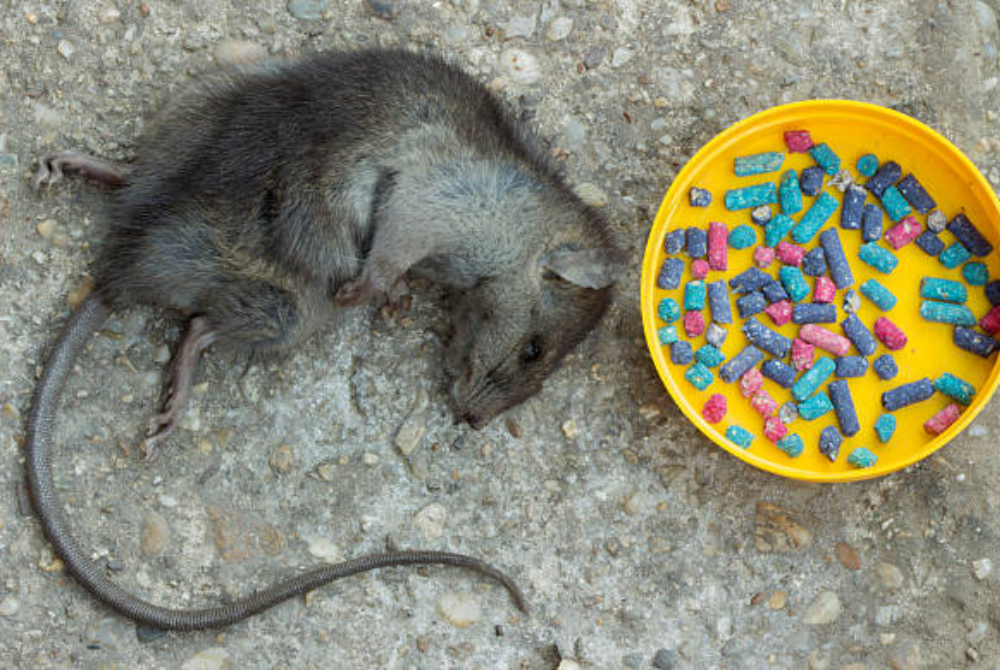Toxic threats: Poisonous items in homes, public spaces
Ensuring that toxic substances are stored and handled correctly is crucial for the safety of children, pets, and everyone in the household.

SHAH ALAM - Rat poison is a common household item, but its presence in homes and public spaces poses a significant risk.
Accidental ingestion or inhalation of rat poison could lead to severe health complications and even death.
Ensuring that toxic substances were stored and handled correctly was crucial for the safety of children, pets, and everyone in the household.
When someone ingested or inhaled rat poison, immediate action would be vital and in severe cases, circulatory failure can occur.
Speaking to Sinar Daily, Consultant Public Health Specialist Prof Dr Hematram Yadav warned that the symptoms could also include bleeding from the gums, nose, or skin and dehydration.
"If you suspect someone has ingested rat poison, prompt medical attention is critical. A blood test can reveal the levels of chemicals and glucose in the blood, while a toxicology screen and liver function test can assess the extent of the poisoning.
"An ECG can help determine if the heart is functioning properly," he advised.
He said that parents and guardians must ensure that such toxic substances were stored out of reach of children and pets.
"Rat poison should be kept in cool, dry places, away from kitchens and food preparation areas," he said.
When handling rat poison or dealing with dead rodents, Dr Hematram urged everyone always to use protective gear, including gloves, eyewear and a mask.
He also advised them to thoroughly wash their hands and any surfaces they touched.
"Always wear protective gear like gloves, eyewear, and a mask when handling rat poison, dead rodents, or rat nests.
"Wash your hands well with soap and water after you're done. Wash any surfaces or handles you may have touched in the process too," he said.
What to do if someone accidentally consumes rat poison?
Dr Hematram said in cases of suspected poisoning, if the person is unconscious, attempt to wake them and encourage them to spit out any remaining substance.
"Do not put your hand in their mouth or try to induce vomiting. While waiting for medical help, place the person in the recovery position—lying on their side with a cushion behind their back and their upper leg pulled slightly forward.
"Keep their head facing down to allow any vomit to escape without being inhaled or swallowed. Avoid giving them anything to eat or drink and ensure they are taken to a hospital immediately for further treatment," he said.
Meanwhile, Former Deputy Health Minister Lee Boon Chye said the most common types of rat poison were zinc phosphide and anticoagulants.
He said that anticoagulants cause blood thinning, leading to spontaneous bleeding and potentially death.
When asked about the treatment, he said it involved vitamin K injections and blood transfusions if detected early.
"Zinc phosphide poisoning, on the other hand, can cause low blood pressure, shortness of breath, fluid in the lungs, circulatory collapse, vomiting, cardiac arrhythmias, convulsions, coma, and death within four days to two weeks.
"Treatment of zinc phosphide poisoning is the supportive ie treatment of complications as needed and there is no antidote," he said
He also stressed the importance of regulatory measures, noting that rat poison should be registered under the Poisons Act 1952, which governs its import, possession, manufacture, storage, transportation, sale, and use.
The regulation, he said, helped ensure that these dangerous substances were appropriately managed and kept out of reach of children.











